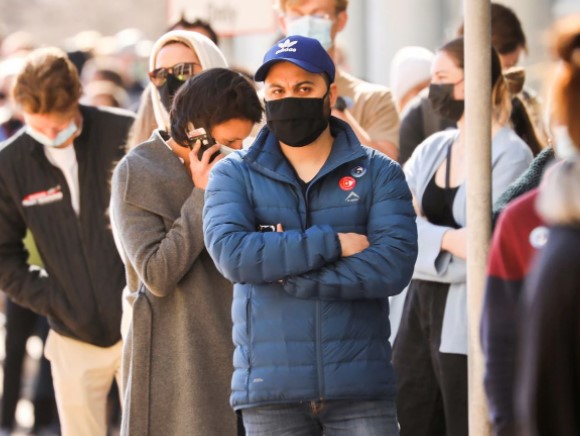×
The Standard e-Paper
Kenya’s Boldest Voice

People queue outside a coronavirus disease (COVID-19) vaccination centre as the country opens vaccinations for everyone 18 years old and above in Cape Town, South Africa. [Reuters]
South African scientists have detected a new coronavirus variant with multiple mutations but are yet to establish whether it is more contagious or able to overcome the immunity provided by vaccines or prior infection.